第17章 CHAPTER III BOARDING-SCHOOL IDEALS(6)
This state of affairs, it may readily be guessed, the essay held to be an example of the feminine trait of mind called intuition, "an accurate perception of Truth and Justice, which rests contented in itself and will make no effort to confirm itself or to organize through existing knowledge." The essay then proceeds--I am forced to admit, with overmuch conviction--with the statement that women can only "grow accurate and intelligible by the thorough study of at least one branch of physical science, for only with eyes thus accustomed to the search for truth can she detect all self-deceit and fancy in herself and learn to express herself without dogmatism." So much for the first part of the thesis. Having thus "gained accuracy, would woman bring this force to bear throughout morals and justice, then she must find in active labor the promptings and inspirations that come from growing insight." I was quite certain that by following these directions carefully, in the end the contemporary woman would find "her faculties clear and acute from the study of science, and her hand upon the magnetic chain of humanity."
This veneration for science portrayed in my final essay was doubtless the result of the statements the textbooks were then making of what was called the theory of evolution, the acceptance of which even thirty years after the publication of Darwin's "Origin of Species" had about it a touch of intellectual adventure. We knew, for instance, that our science teacher had accepted this theory, but we had a strong suspicion that the teacher of Butler's "Analogy" had not. We chafed at the meagerness of the college library in this direction, and I used to bring back in my handbag books belonging to an advanced brother-in-law who had studied medicine in Germany and who therefore was quite emancipated. The first gift I made when I came into possession of my small estate the year after I left school, was a thousand dollars to the library of Rockford College, with the stipulation that it be spent for scientific books. In the long vacations I pressed plants, stuffed birds and pounded rocks in some vague belief that I was approximating the new method, and yet when my stepbrother who was becoming a real scientist, tried to carry me along with him to the merest outskirts of the methods of research, it at once became evident that I had no aptitude and was unable to follow intelligently Darwin's careful observations on the earthworm. I made a heroic effort, although candor compels me to state that I never would have finished if I had not been pulled and pushed by my really ardent companion, who in addition to a multitude of earthworms and a fine microscope, possessed untiring tact with one of flagging zeal.
As our boarding-school days neared the end, in the consciousness of approaching separation we vowed eternal allegiance to our "early ideals," and promised each other we would "never abandon them without conscious justification," and we often warned each other of "the perils of self-tradition."
We believed, in our sublime self-conceit, that the difficulty of life would lie solely in the direction of losing these precious ideals of ours, of failing to follow the way of martyrdom and high purpose we had marked out for ourselves, and we had no notion of the obscure paths of tolerance, just allowance, and self-blame wherein, if we held our minds open, we might learn something of the mystery and complexity of life's purposes.
The year after I had left college I came back, with a classmate, to receive the degree we had so eagerly anticipated. Two of the graduating class were also ready and four of us were dubbed B.A. on the very day that Rockford Seminary was declared a college in the midst of tumultuous anticipations. Having had a year outside of college walls in that trying land between vague hope and definite attainment, I had become very much sobered in my desire for a degree, and was already beginning to emerge from that rose-colored mist with which the dream of youth so readily envelops the future.
Whatever may have been the perils of self-tradition, I certainly did not escape them, for it required eight years--from the time I left Rockford in the summer of 1881 until Hull-House was opened in the the autumn of 1889--to formulate my convictions even in the least satisfactory manner, much less to reduce them to a plan for action. During most of that time I was absolutely at sea so far as any moral purpose was concerned, clinging only to the desire to live in a really living world and refusing to be content with a shadowy intellectual or aesthetic reflection of it.